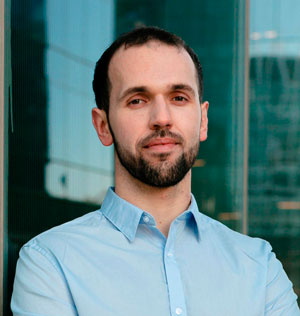Don't see an advisor you admire? Let's add him to the database! - Request
.JPG)
Smartbits - Are Emotions Mere Concepts? Dr. Lisa Feldman Barrett Explains
The only reason why I gave a second thought to what Dr. Barrett teaches about emotions is her remarkable and universal recognition. I would be quick to dismiss anyone saying that emotions are just concepts constructed by our minds, but Lisa Feldman Barrett, Ph.D.:
- Is a top 1% of most-cited researcher
- Published over 200 peer-reviewed papers
- Testified before Congress in a role of an expert
- Did research for FBI
- Is a distinguished professor of Psychology at Northeastern University
- Wrote several acclaimed books, including “How Emotions Are Made: The Secret Life of the Brain.”
I have mentioned these accolades here so we can be more receptive towards her radical ideas about emotions.
The way we think about emotions is wrong.
The popular view in our culture is that emotions are built into our brains at birth. Evolution has wired us for an automatic (reflex-like) emotional response to certain stimuli. We can suppress it or restrain ourselves, but we can’t do anything about the initial response itself, which is universally programmed. In other words, an emotion is just a natural reaction entirely outside of our control. It is the universal language.
Well… the above might be just a myth which we should reconsider in the face of scientific evidence.
The defeating blow to the popular view
Based on decades of research, Dr. Feldman says:
For every emotion category that we have in the U.S. that we think is biologically basic and universal, there’s at least one culture in the world that doesn’t possess a concept for that emotion and where people don’t really feel that emotion.
Happiness, fear, disgust, anger… you name it. If these are not universal (hard to believe but true according to the research), then the whole popular concept of emotions needs a thorough review.
The modern science of emotions in a nutshell
There is nothing inevitable about emotions. Emotions are not reactions to the world, but they construct the world. To explain further, we need to introduce a new concept.
Introception
The brain is very busy regulating a tremendous number of systems in our body without us being aware of it. Interoception is the feeling of the sensations coming from inside our bodies. It is like a meter, an internal “I” that monitors the systems inside our bodies and communicates the information to the brain.
Interoception is dumb simple - just four types of messages.
It turns out we don’t have a rich high-bandwidth information highway (like with sight, hearing, smelling, or touch) for interoception. All it can tell our brain are the four simple sensations: pleasantness, unpleasantness, arousal, and calmness.
How can four simple inner sensations serve as the foundation for all the emotions?
The brain keeps developing experience-based theories for inner sensations. As we grow up, we create a log about how inner feelings pair up with experience. The arousal we feel after being pushed by another kid is anger; the unpleasantness caused by a sudden noise is fear, etc. What we call emotions are the contextualized interpretations of introspection, i.e., concepts.
Concepts - the brain’s use of past experience to make sense of incoming sensory input.
The raw sensations of pleasantness, unpleasantness, arousal, or calmness are conceptualized and perceived as emotions. We learn to do it so fast and effortlessly that it feels strange to think of emotions as anything other than a natural and universal attribute of human nature.
It also implies that without concepts, we wouldn’t have emotions. Everything we experience around and inside ourselves is vague until the concepts in our heads turn it into “a thing.”
Your emotional experience is not an indication of something objective about the event.
The takeaway
We have more control over emotions than we could imagine because the concepts are not hard-wired. We can change them. Ultimately we are in control.
I hope it sounds empowering and inspiring even though it may seem like the idea comes from the “easier said than done” department. Changing ingrained behavioral and emotional patterns is very hard. It is not simple to dismantle the habits built by decades of practicing pairing introception with concepts. But for those in pursuit of emotional mastery, or emotional healing, the writing is on the wall - it is possible.
To learn more about the work of Dr. Lisa Feldman Barrett on emotions:
Invisibilia - The Making Of Emotions, From Pleasurable Fear To Bittersweet Relief
How Emotions Are Made: The Secret Life of the Brain
You aren't at the mercy of your emotions -- your brain creates them | Lisa Feldman Barrett

